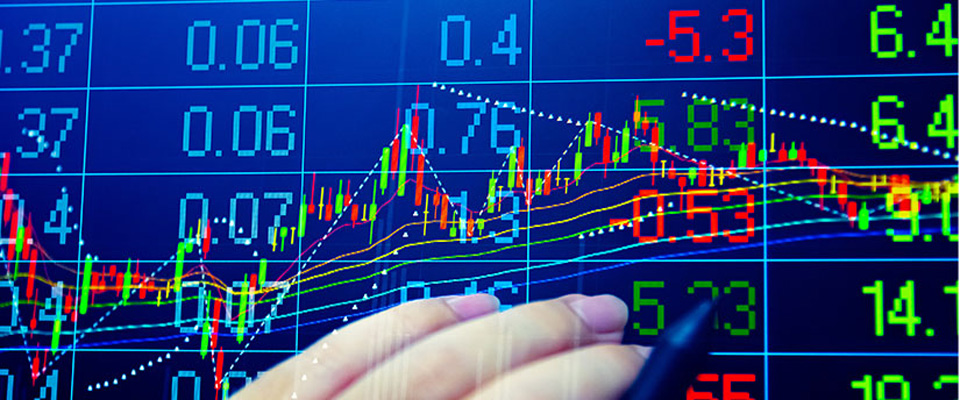What are the Advantages of CFD forex trading? Useful Guide
What are the Advantages of CFD forex trading? Useful Guide
This way to trade forex offers various benefits which led to an increasing popularity around CFDs over the last decade. Especially nowadays that most online brokerages offer
-

- by ALLFOREXRATING.COM
- 4th June 2022 | Post Views: 1309

What are the Advantages of CFD trading? Useful Guide
A contract for difference (CFD) refers to a contract between a buyer and a seller that indicates that the latter has to pay the former the difference between the present asset value and the its value at the time of the contract. CFDs give traders the opportunity to generate revenue from movements in the prices of assets without actually owning the underlying instruments. The asset’s underlying value is not considered when trading through a CFD, but only the change in the price between the entry and exit of the trade.
Contract-for-difference (CFD) trading is an increasingly popular choice among online traders. They can trade from the comfort of their own home using a broker’s platform and trade with flexible leverage that can multiply profits or losses.
This way to trade forex offers various benefits which led to an increasing popularity around CFDs over the last decade. Especially nowadays that most online brokerages offer
How do CFDs work?
As already mentioned, a CFD is an agreement between the client and the CFD broker to give the difference in the value of an asset, starting from the opening time of the contract until the time it closes. CFD trading is considered an advanced trading strategy used by professional traders.
With CFDs there is no delivery of physical goods. In fact, the investor does not own the actual asset but rather generates revenue depending on changes on its price. Taking gold as an example, the investor does not buy or sell physical gold but rather speculates on its price to see whether it will rise or fall.
Traders actually make predictions based on whether or not the price of a certain asset or security will increase or decrease. So, they make predictions on the movement of the price, which can either be upward or downward. Usually, if a trader buys a CFD and sees that its price increases, they will often try to sell it. The difference between the buying price and the selling price are balanced out and the net profit from the trade is settled in the trader’s trading account. The same will happen with a possible net loss.
Benefits of trading CFDs
So, what are the actual benefits of CFD trading? Read below for some of the key advantages.
Increased leverage
CFDs, provide a greater leverage compared to traditional trading. In the CFD market, leverage depends on the regulation and it now ranges somewhere between 3% or up to 50% which is 30:1 and 2:1 respectively. Different brokers provide different leverage though. When there is low margin requirement it means that the trader uses less capital but has greater potential returns. Nevertheless, there is always the possibility that leverage may magnify losses.
In the more traditional investments, traders have to use 100% of their capital to trade. For example, if you wanted $2, 000 of a stock you would have to put all that amount in your investment. In CFD trading though, if the margin requirement is 5%, then less capital is required to open a position while there are more possibilities to potentially increase profit. For a $2000 position for example, you would need to put only $100 to that investment. You can use the rest to other positions. However, as already mentioned, there are always risks involved.
No fees – low transaction costs
Like with traditional brokers, stops, limits and other orders are also offered by CFD brokers. If we compare CFD brokerage fees to more traditional trading methods though, the former are usually more cost-effective. Some of them will charge a fee for guaranteed stops. Generally, brokers make money through the spread and they sometimes charge commissions or fees. For instance, if you spend $50 for a $1000 position the broker will charge a small fee to cover the difference.
Traders buy an asset by paying the ask price and sell it by paying the bid price. The difference between the two is the spread, which can be either small or large depending on how volatile the asset is. However, fixed spreads are usually available and make sure you always check a broker’s fee details before you open a trading account and start trading.
No rules on shorting or day trading requirements
There are some markets that have rules that forbid shorting which requires traders to borrow the asset before going short. There are some others that have other margin requirements for going short or long. In CFD trading, assets can be shorted anytime without the need to borrow anything as the trader does not actually own the instrument.
Also, there are specific markets that have a minimum amount of capital required to day trade. With CFDs, traders are not bound to such restrictions and they can day trade if they prefer to.
Global market – various opportunities
Traders have around-the-clock access to a variety of products offered by CFD brokers in the major markets around the world. They also have access to various trading opportunities as most brokers offer indices, stocks, currency or commodity CFDs, enabling them to speculate on diverse paths with an alternative to exchanges way, like CFDs.
Moreover, CFDs do not depreciate over time and do not have expiration dates. They also have fewer restrictions regarding closing a position compared to other investment types, like futures for example. Therefore, although day traders may not see much of a benefit, those that take a longer-term approach and are patient, can explore the market and wait for the right time to sell.
Things to keep in mind with CFDs
It is equally important to understand the potential risks before you delve into CFD trading. CFDs are extremely complex trading instruments bearing in mind the risk around leveraging CFDs. The may catch traders by surprise so make sure that you carefully read the contracts. You should also be aware of the CFD provider, which is another type of risk also referred to as counterparty risk.
Although there are numerous opportunities when trading CFDs, significant potential risks also need to be examined carefully prior to opening a position.
Write a Comment
What are the Advantages of CFD forex trading? Useful Guide
This way to trade forex offers various benefits which led to an increasing popularity around CFDs over the last decade. Especially nowadays that most online brokerages offer

What are the Advantages of CFD trading? Useful Guide
A contract for difference (CFD) refers to a contract between a buyer and a seller that indicates that the latter has to pay the former the difference between the present asset value and the its value at the time of the contract. CFDs give traders the opportunity to generate revenue from movements in the prices of assets without actually owning the underlying instruments. The asset’s underlying value is not considered when trading through a CFD, but only the change in the price between the entry and exit of the trade.
Contract-for-difference (CFD) trading is an increasingly popular choice among online traders. They can trade from the comfort of their own home using a broker’s platform and trade with flexible leverage that can multiply profits or losses.
This way to trade forex offers various benefits which led to an increasing popularity around CFDs over the last decade. Especially nowadays that most online brokerages offer
How do CFDs work?
As already mentioned, a CFD is an agreement between the client and the CFD broker to give the difference in the value of an asset, starting from the opening time of the contract until the time it closes. CFD trading is considered an advanced trading strategy used by professional traders.
With CFDs there is no delivery of physical goods. In fact, the investor does not own the actual asset but rather generates revenue depending on changes on its price. Taking gold as an example, the investor does not buy or sell physical gold but rather speculates on its price to see whether it will rise or fall.
Traders actually make predictions based on whether or not the price of a certain asset or security will increase or decrease. So, they make predictions on the movement of the price, which can either be upward or downward. Usually, if a trader buys a CFD and sees that its price increases, they will often try to sell it. The difference between the buying price and the selling price are balanced out and the net profit from the trade is settled in the trader’s trading account. The same will happen with a possible net loss.
Benefits of trading CFDs
So, what are the actual benefits of CFD trading? Read below for some of the key advantages.
Increased leverage
CFDs, provide a greater leverage compared to traditional trading. In the CFD market, leverage depends on the regulation and it now ranges somewhere between 3% or up to 50% which is 30:1 and 2:1 respectively. Different brokers provide different leverage though. When there is low margin requirement it means that the trader uses less capital but has greater potential returns. Nevertheless, there is always the possibility that leverage may magnify losses.
In the more traditional investments, traders have to use 100% of their capital to trade. For example, if you wanted $2, 000 of a stock you would have to put all that amount in your investment. In CFD trading though, if the margin requirement is 5%, then less capital is required to open a position while there are more possibilities to potentially increase profit. For a $2000 position for example, you would need to put only $100 to that investment. You can use the rest to other positions. However, as already mentioned, there are always risks involved.
No fees – low transaction costs
Like with traditional brokers, stops, limits and other orders are also offered by CFD brokers. If we compare CFD brokerage fees to more traditional trading methods though, the former are usually more cost-effective. Some of them will charge a fee for guaranteed stops. Generally, brokers make money through the spread and they sometimes charge commissions or fees. For instance, if you spend $50 for a $1000 position the broker will charge a small fee to cover the difference.
Traders buy an asset by paying the ask price and sell it by paying the bid price. The difference between the two is the spread, which can be either small or large depending on how volatile the asset is. However, fixed spreads are usually available and make sure you always check a broker’s fee details before you open a trading account and start trading.
No rules on shorting or day trading requirements
There are some markets that have rules that forbid shorting which requires traders to borrow the asset before going short. There are some others that have other margin requirements for going short or long. In CFD trading, assets can be shorted anytime without the need to borrow anything as the trader does not actually own the instrument.
Also, there are specific markets that have a minimum amount of capital required to day trade. With CFDs, traders are not bound to such restrictions and they can day trade if they prefer to.
Global market – various opportunities
Traders have around-the-clock access to a variety of products offered by CFD brokers in the major markets around the world. They also have access to various trading opportunities as most brokers offer indices, stocks, currency or commodity CFDs, enabling them to speculate on diverse paths with an alternative to exchanges way, like CFDs.
Moreover, CFDs do not depreciate over time and do not have expiration dates. They also have fewer restrictions regarding closing a position compared to other investment types, like futures for example. Therefore, although day traders may not see much of a benefit, those that take a longer-term approach and are patient, can explore the market and wait for the right time to sell.
Things to keep in mind with CFDs
It is equally important to understand the potential risks before you delve into CFD trading. CFDs are extremely complex trading instruments bearing in mind the risk around leveraging CFDs. The may catch traders by surprise so make sure that you carefully read the contracts. You should also be aware of the CFD provider, which is another type of risk also referred to as counterparty risk.
Although there are numerous opportunities when trading CFDs, significant potential risks also need to be examined carefully prior to opening a position.
| # | Forex Broker | Year | Status | For | Against | Type | Regulation | Leverage | Account | Advisors | ||
| 1 |  |
JustMarkets | 2012 | 36% | 4% | ECN/STP | FSA, CySEC, FSCA, FSC | 1:3000* | 1 | Yes | ||
|---|---|---|---|---|---|---|---|---|---|---|---|---|
| 2 |  |
Hantec Markets | 1990 | 35% | 6% | ECN/STP | ASIC, FCA, FSA-Japan, FSC, JSC | 1:2000* | 100 | Yes | ||
| 3 |  |
Valetax | 2023 | 35% | 1% | ECN/STD | FSC | 1:2000* | 10 | Yes | ||
| 4 |  |
KCM Trade | 2016 | 32% | 3% | ECN/STD | FSC | 1:400* | 100 | Yes | ||
| 5 |  |
Plotio | 1983 | 31% | 2% | STP | HKGX, ASIC, SCB | 1:300* | 200 | Yes | ||
| 6 |  |
FISG | 2011 | 30% | 1% | ECN/STD | FSA, CySEC, ASIC | 1:500 | 0.01 | Yes | ||
| 7 |  |
ATFX | 2017 | 25% | 3% | Broker/NDD | FCA, CySEC, FSCA | 1:400* | 100 | Yes | ||
| 8 |  |
Octa | 2011 | 20% | 3% | ECN/STD | Regulation: CySEC, MISA, FSCA and FSC | 1:1000* | 5 | Yes | ||
| 9 |  |
Youhodler | 2018 | 20% | 2% | Exchange | EU (Swiss) licensed | Up to 1:500 | 100 | Yes | ||
| 10 |  |
Uniglobe markets | 2015 | 20% | 3% | ECN/STP | Yes | Up to 1:500 | 100 | Yes | ||
| 11 |  |
IEXS | 2023 | 20% | 6% | ECN/STP | ASIC, FCA | Up to 1:500 | 100 | Yes | ||
| 12 |  |
TradeEU | 2023 | 18% | 4% | CFDs | CySEC | 1:300* | 100 | Yes | ||
| 13 |  |
RoboForex | 2009 | 16% | 4% | ECN/STD | FSC, Number 000138/333 | 1:2000* | 10 | Yes | ||
| 14 |  |
Axiory | 2011 | 15% | 5% | Broker, NDD | IFSC, FSC, FCA (UK) | 1:777* | 10 | Yes | ||
| 15 |  |
FBS | 2009 | 13% | 4% | ECN/STD | IFSC, CySEC, ASIC, FSCA | 1:3000* | 100 | Yes |











